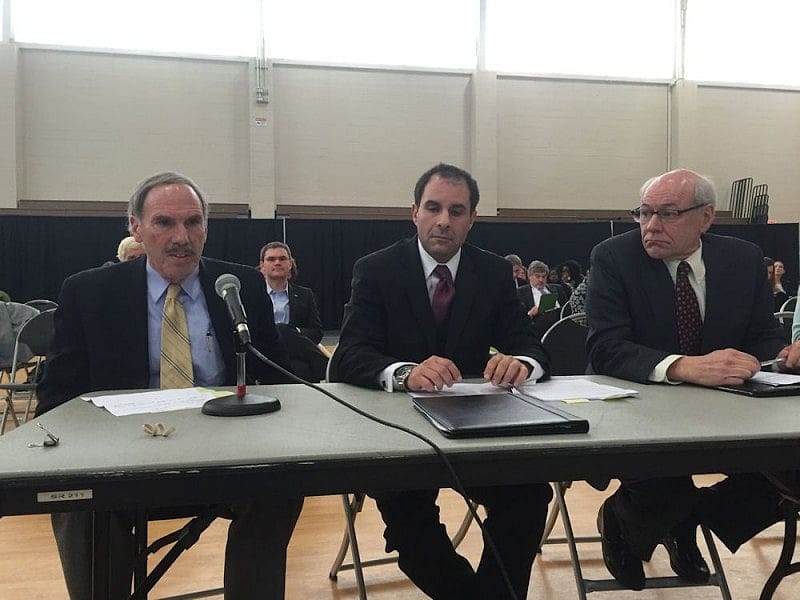Dorchester Collegiate charter school faces closure

BOSTON – In an emotionally charged gymnasium filled with parents and bureaucrats, the state's education board voted narrowly on Tuesday to revoke the charter of Dorchester Collegiate Academy Charter School.
It appeared Commissioner of Elementary and Secondary Education Mitchell Chester's recommendation might deadlock before the board until member Michael Moriarty raised his hand to tip the balance in a 6 to 4 decision. He told the News Service he made up his mind how to vote when the vote was called.

